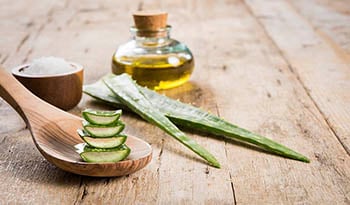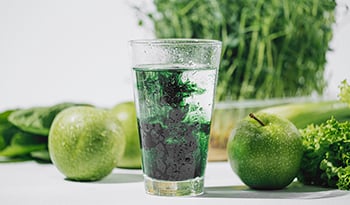5 yksinkertaista suun terveysvinkkiä

Miksi suun terveys on tärkeämpää kuin luulemme
Suun terveyden priorisoiminen tekee paljon muutakin kuin pitää hymymme kirkkaina. Se on investointi yleiseen hyvinvointiimme. Ajattele suuta porttina kehoon. Se, mitä siellä tapahtuu, voi vaikuttaa siihen, miten muu kehomme toimii ja tuntuu. Tutkimukset korostavat edelleen suun terveyden ja koko kehon terveyden välistä vahvaa yhteyttä.
Täydellinen suun terveys ylittää harjaamisen ja hammaslangan käytön. Tekijät, kuten suun kuivuminen, joka usein johtuu tietyistä lääkkeistä, voivat myös vaikuttaa suun mukavuuteen. Tämä on yksi monista syistä, miksi työskentely hammaslääkärin kanssa on niin tärkeää. Hammaslääketieteen ammattilaiset voivat auttaa vastaamaan yksilöllisiin tarpeisiin.
Muutamalla yksinkertaisella päivittäisellä tavalla ja vanhojen kasvitieteellisten aineiden avulla voimme luoda rutiineja, jotka auttavat meitä tuntemaan olomme parhaaksi!
Yleisiä suun terveysongelmia, joita on tarkkailtava
Suunhoidon ennakoiva toiminta on avain yleisen hyvinvoinnin ylläpitämiseen ja monimutkaisempien ongelmien ehkäisyyn. Jotkut yleisimmistä huolenaiheista, joita ihmiset kokevat, ovat:
- Hampaiden herkkyys
- Suun kuivuminen
- Ärsytetyt ikenet
Puhtaan suun ja raikkaan hengityksen tukemiseksi on tärkeää harjata ja käyttää hammaslankaa kahdesti päivässä vähintään 2 minuutin ajan. Suuhygienisti voi olla erinomainen lähde opastamaan parhaita käytäntöjä ja tekniikoita parhaiden tulosten saavuttamiseksi. Pitkäaikaisen suun terveyden tukemiseksi vältä tupakointia tai purutupakkaa, rajoita sokeripitoisia ruokia ja juomia ja juo runsaasti vettä koko päivän.
Tiettyjen ryhmien on ehkä oltava erityisen tietoisia suullisista rutiineistaan. Esimerkiksi vanhemmat aikuiset ja raskaana olevat henkilöt voivat kokea suun muutoksia hormonien tai terveystilojen muuttumisen vuoksi. Kroonisia terveysongelmia hoitavien ihmisten tulisi aina puhua hammaslääkärin kanssa varmistaakseen, että he saavat henkilökohtaista hoitoa.
Työkalut, kuten kielikaavin tai kasvipohjainen suuvesi, voivat auttaa meitä pysymään tuoreina ja hygieniamme mukaisina. Muutaman helpon päivittäisen tavan avulla voimme rakentaa vahvan suunhoitorutiinin, joka sopii sujuvasti jokapäiväiseen elämäämme:
1. Kokeile kielen kaavinta joka aamu
Kielen kaavinta on perinteinen itsehoitokäytäntö, jota käytetään poistamaan kertymiä kielen pinnalta. Tärkeintä kielen raapimisesta on olla lempeä, koska liian kova painaminen voi johtaa punoitukseen ja ärsytykseen. Kielen kaavin käyttäminen heti aamulla voi auttaa edistämään raikasta hengitystä ja tukemaan suun puhtautta. Tämän tavan sisällyttäminen päivittäiseen suunhoitorutiiniin on helppoa ja kestää vain muutaman sekunnin.
2. Vältä alkoholipohjaisia suuvesiä
Monet tavanomaiset suuvedet sisältävät korkean alkoholiprosentin, mikä voi aiheuttaa kuivumista suuontelossa. Alkoholittomien tai vähäalkoholisten suuhuuhteluaineiden valinta, jotka on valmistettu hellävaraisemmista kasviperäisistä ainesosista, voi olla hyvä vaihtoehto niille, jotka haluavat tukea terveellistä mikrobitasapainoa suussa.
3. Tukea ikeniä testatuilla yrtteillä
Luonto tarjoaa laajan valikoiman kasviperäisiä aineita, joita perinteisesti käytetään suun hoitorutiineissa. Näitä yrttejä on historiallisesti arvostettu luonnollisissa käytännöissä:
- Mirrhakumi: Tätä tuoksuvaa hartsia on käytetty pitkään suuhygienian perinteissä. Se auttaa vahvistamaan ja rauhoittamaan suun kudoksia.
- Piparminttu Lehti: Virkistävästä aromistaan ja viilentävästä tunteestaan tunnettu piparminttu tukee raikasta hengitystä ja virkistää aisteja.
- Usnea Jäkälä: Tällä jäkälällä on pitkä historia perinteisessä yrttihoidossa. Sitä arvostetaan puhdistusominaisuuksistaan ja kyvystään tukea suun raikkautta.
- Mehiläispropolis: Tätä mehiläisten keräämää hartsimaista ainetta käytetään perinteisesti auttamaan ylläpitämään terveellistä ympäristöä suussa. Sen rauhoittavat ja suojaavat ominaisuudet ovat tehneet siitä perusaineen luonnollisissa suunhoitotuotteissa.
- Bayberry-juurikuori: Yrttilääkärit käyttävät usein suun kudoksen sävyn tukemiseen, bayberryllä on supistavia ominaisuuksia, joita on arvostettu perinteisissä suuhuuhteluissa ja kuristuksissa.
- Villi geraniumjuuri: Tätä yrttiä on käytetty kasviperäisissä perinteissä tukemaan vahvoja, puhtaita ikeniä. Sen lempeä supistava vaikutus tekee siitä hyödyllisen liittolaisen luonnollisissa suuhygieniarutiineissa.
Kun valitset suunhoitotuotteita, ota huomioon ne, joissa näitä yrttejä on vähäalkoholisissa ja kasvipohjaisissa formulaatioissa. Ota aina yhteyttä terveydenhuollon tarjoajaan ennen uuden täydennysohjelman aloittamista.
4. Pysy hyvin hydratoituneena + Syö kokonaisten ruokien ruokavaliota
Nesteytyksellä on keskeinen rooli syljen tuotannossa, mikä auttaa puhdistamaan suun ja ylläpitämään terveellistä tasapainoa. Veden juominen koko päivän on tärkeää, koska se auttaa pesemään ruokahiukkaset pois ja tukee suun mukavuutta.
Ruokavalion syöminen, joka sisältää runsaasti kokonaisia, vähän jalostettuja ruokia, mukaan lukien kuitupitoiset hedelmät ja vihannekset, voi tukea myös suun terveyttä. Rapeat tuotteet, kuten omenat ja porkkanat, puhdistavat hampaat luonnollisesti harjojen välillä.
5. Älä ohita suunhoitorutiiniasi!
Joinakin öinä olemme liian väsyneitä tekemään muutakin kuin ryömimään sänkyyn. Mutta muutaman minuutin ottaminen suun hoitorutiiniin tekee eron. Se auttaa poistamaan bakteereja plakin muodossa, tukee raikasta suuta ja pitää ikenet vahvoina
Harjaus vähintään kahdesti päivässä ja hammaslangan käyttö ovat yksinkertaisia mutta välttämättömiä vaiheita. Hammaslääkärit suosittelevat usein sähköhammasharjoja niiden yleisen tehokkuuden vuoksi ja suosittelevat sähköhammasharjapäiden vaihtamista kolmen kuukauden välein, ellei aikaisemmin.
Säännölliset hammaslääkärintarkastukset ja puhdistukset auttavat meitä pysymään tiellä ja tunnistamaan ongelma-alueet, jotka tarvitsevat huomiota.
Lopullinen rivi
Suun terveytemme hoitaminen on olennainen osa koko kehon terveyttä. Muutama tietoinen tapa, mukaan lukien optimaalinen ravitsemus, runsaan veden juominen ja yrttien käyttö, joilla on pitkä suullinen tuki, voivat auttaa pitämään suumme tasapainossa ja puhtaana.
Viitteet:
- Scannapieco, FA, & Papandonatos, G.D. (2020). Suun sairauksien ja systeemisen sairauden välinen yhteys: Katsaus nykyisiin todisteisiin. Kliinisen periodontologian lehti, 47 (2), 189—201.
- Marsh, P.D. (2018). Suun m: n rooli ikroflorassa terveydessä. Mikrobiekologia terveydessä ja sairauksissa, 29 (1), 7285.
- Alvear, M. ja Paredes, A. (2015). Kielen puhdistuksen vaikutus pahanhajuiseen hengitykseen: Satunnaistettu tutkimus. Kansainvälinen hammashygienian lehti, 13 (3), 197—202.
- Peppi, R. (2017). Alkoholipitoiset suuvedet: Systemaattinen katsaus suun limakalvoon kohdistuvista vaikutuksista. Suun lääketiede, suun patologia ja suukirurgia, 22 (5), e502—e510.
- Yhdysvaltain kansallinen lääketieteellinen kirjasto. ”Kasviperäiset lääkkeet.” MedlinePlus. https://medlineplus.gov/herbalmedicine.html
VASTUUVAPAUSLAUSEKE:Tämän hyvinvointiblogin tarkoituksena ei ole tarjota diagnooseja...
















































































 Sisällysluettelo
Sisällysluettelo














